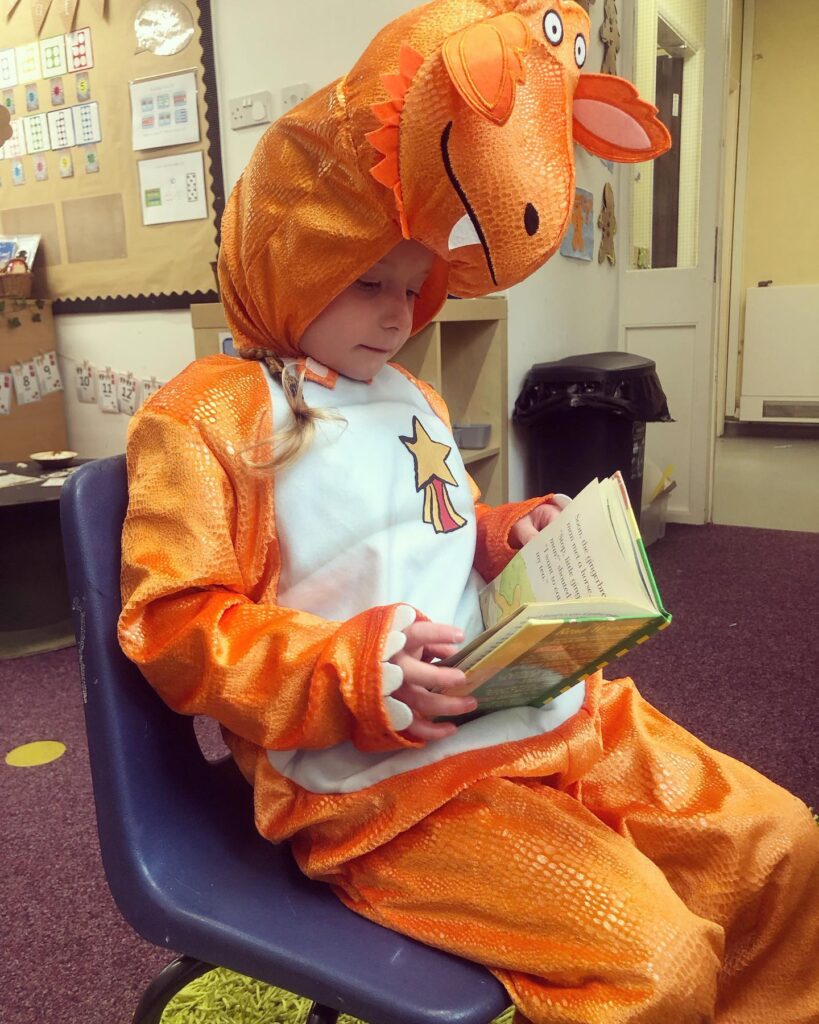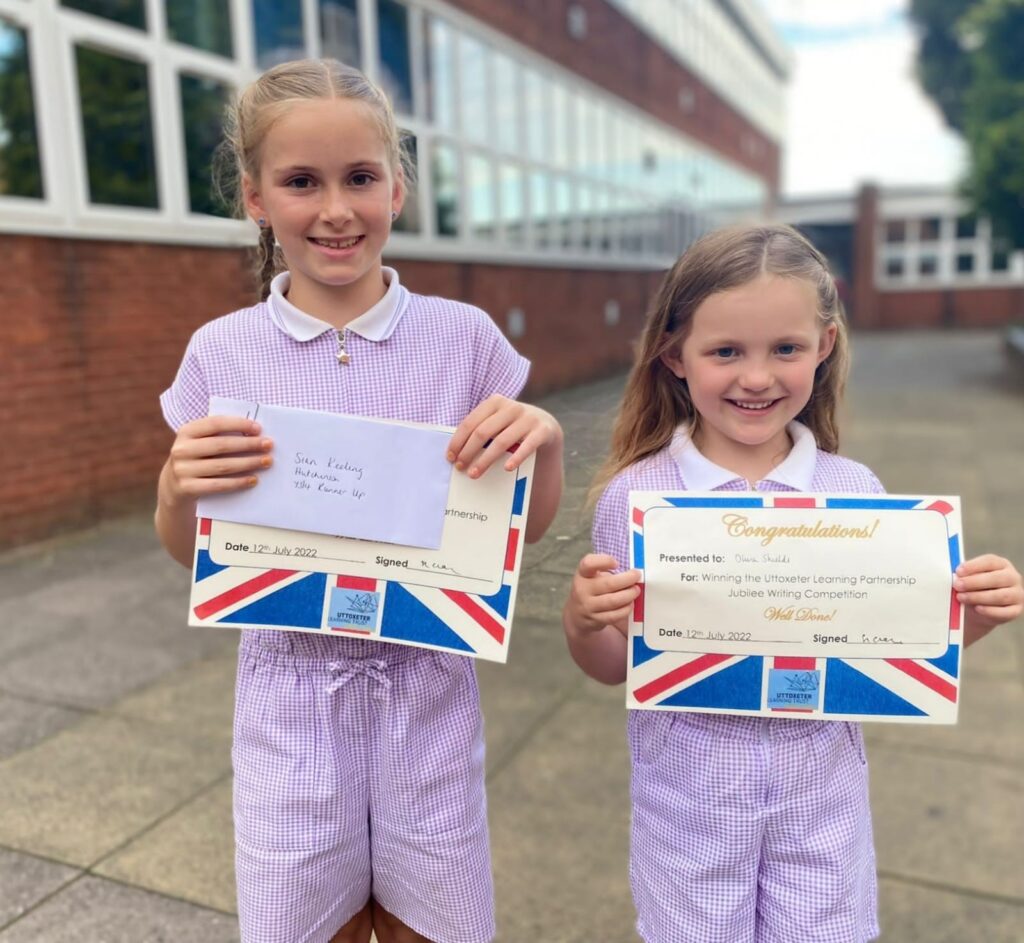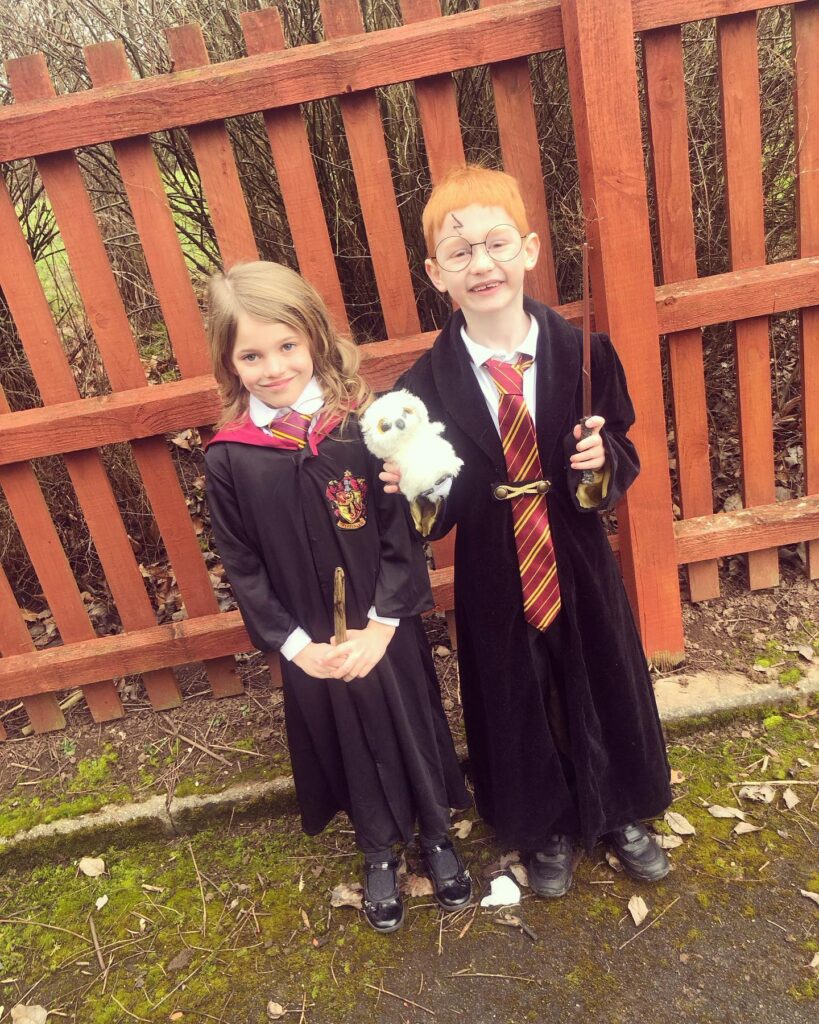


At Hutchinson Memorial C.E. First School , we believe that children should have access to the best possible books and experiences as they become proficient readers and writers.
We aim to foster a love of reading for a range of purposes, and we are proud of our reading environments and library.
Fostering a proficiency and a love of reading is prioritised at Bramshall Meadows First School, so reading is central to the daily timetable for all children.
Phonics is taught daily in EYFS and Year 1 using DFE Approved Twinkl Phonics and we continue to support older children with phonics, using the Twinkl Phonics Catch Up scheme, if they need it. We also have a specialist intervention in Year 2 and KS2 for children whose reading skills are below those expected for their age.
In KS1 and KS2, through taught Guided Reading sessions, daily story time and weekly library visits, pupils are exposed to a range of reading opportunities. Guided Reading sessions from EYFS to Y6 allow children the opportunity to see reading modelled effectively by staff and also enable children to read independently and with reading partners.
Writing
Children at Hutchinson Memorial C.E. First School are taught to write for a range of audiences and purposes. We adapt the excellent teaching sequences from the Literary Curriculum, which are based on a range of high-quality children’s books by authors from many different backgrounds. Teachers plan and deliver engaging lessons covering different writing skills and genres, imagining themselves in the role of a writer.
All children have access to texts and books matched to their phonics level, reading band or stamina. Children are regularly assessed by their teachers during lessons and assessment tasks to make sure every child is making progress with their reading.
We also provide regular whole school reading events to foster a love of reading and run workshops for parents to support them with reading at home.
Children in EYFS and Year 1 are encouraged to use writing in their play and learn to form letters during the phonics sessions. Children in Y1 and upwards are taught to join letters and write in a cursive style.
they can also express their understanding of concepts through writing across all areas of the curriculum. Through this, we aspire to empower them to be successful at secondary school, in further or higher education, and eventually in employment. We want Bramshall Meadows children to develop a strong command of the English language, giving them the cultural capital to express themselves effectively in writing. In EYFS we want children to understand that writing is a form of communication and that there is a link between reading and writing.
Reading
Hutchinson Memorial C.E. First School is determined that every child will learn to read, regardless of background, needs or abilities. We want our children to be fluent, confident readers. They will be exposed to a wealth of stories, poems, rhymes and non-fiction to develop their vocabulary, language comprehension and engender a genuine love of reading and a keen interest in a range of texts. We work to inspire them to become life-long readers who enjoy books and have a desire to read for pleasure.
In order for the children to have the will to read, and be able to read to learn, they need to have secure skills in reading so that they can read with fluency and comprehension. Reading is at the heart of our whole curriculum underpinning every subject area. We want every child to read widely, and to gain a rich knowledge across the curriculum. By offering a wide range of texts we aim to broaden their minds and experiences to allow them to empathise with the world in which they live and support the development of their cultural capital. Reading is such an important life skill that it is imperative we enable them to become independent readers who can easily process information, fully engage in all learning and be well prepared for their next stage of their education.
Early Reading at Hutchinson Memorial C.E. First School
We teach early reading through the systematic, synthetic phonics programme Twinkl Phonics.
We use Twinkl Phonics as our systematic, synthetic phonics programme (SSP). It is high quality and robust in its purpose. With a clear, structured progression through the programme, it allows all of our pupils to meet or exceed the expected standard.
The Twinkl Phonics approach combines rigorous progression with engaging learning materials. We believe that children learn best when they are enjoying their learning and that this comes from a mix of bright, fun and engaging lesson resources within a clear and systematic approach that builds on children’s skills daily.
The structure of every Twinkl Phonics lesson follows this familiar five-part structure to ensure that the four cornerstones of phonics are covered. During our phonics lessons, children will repeat the elements from the four cornerstones of phonics to ensure that they have rapid and automatic recall of GPCs and tricky/common exception words; each day, they will experience blending and segmenting activities to allow regular practice of these core skills.
Stories are used to provide a stimulus and context for phonics teaching in our Twinkl Phonics lessons. The story content also integrates games to practise the skills taught. Our phonics lessons are also supported by weekly decodable minibooks, which are part of our core provision, where children can apply the skills they have learnt in their phonics lessons.
Phonics is taught daily to all children in EYFS and key stage 1. Within reception, phonics sessions will increase in length over the year. By the end of reception, children spend about an hour a day consolidating previous learning, learning new content and practising and applying what they have learnt. This will consist of a mixture of carpet time and follow-up activities.
Children will be regularly assessed to ensure they are receiving phonics teaching at the correct level.
Rhino Readers Decodable Books
Our decodable Rhino Readers reading books make sure children are well prepared to read, containing a ‘before reading’ page which allows children to rehearse the grapheme-phoneme correspondences and tricky/common exception words they will meet in the text. The sound cards match the Twinkl Phonics mats, providing familiarity, and there are also blending practice activities, containing focus words with sound buttons. The ‘after reading’ activities are designed to encourage discussion, recall, sequencing, comprehension and inference at a level appropriate to the text. There are also ‘Rhino Challenges’, with ideas for linked artwork, discussion, drama, craft, investigation – there’s something for everyone to add to the experience and help children make links to their own experiences.
Reading for Pleasure
Reading for Pleasure remains a whole school priority. Reading enjoyment has been reported as more important for children’s educational success than their family’s socio-economic status (OECD, 2002). We believe that a whole school Reading for Pleasure culture must be planned for and promoted throughout the school in a variety of ways, ensuring that all children have the opportunity to develop that real.
Every day the teachers read aloud the class book to the children. These texts are chosen carefully so there is a range of high quality, diverse texts to engage the children and appeal to a range of children. When reading aloud, they do not stop unnecessarily to ask clarification/comprehension questions. Instead, they allow the story to weave its own magic, only pausing occasionally where necessary to define any important vocabulary.
Children read independently during morning and afternoon registration times. Reading is encouraged at home and parents are supported parents to understand how to read to/with their children. Teachers promote reading for pleasure through making recommendations and informal book talk; this includes promoting the different reading challenges for each year group. Careful recording of what the children’s reading diet includes happens regularly so staff are able to monitor, develop and extend this as and when appropriate.
